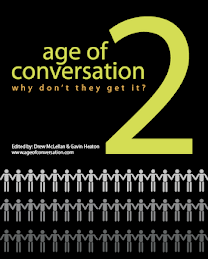Nevertheless, whenever I think about this, I convince myself even more, that this situation is provoked by the holder of the title himself and that, for this very reason, one can completely transform the situation, as long as we are authentically willing to do some adjustments on the way we conduct ourselves every day, so we can stop being managers to become leaders:
- Understand that we do not work to be on our boss's good grace and that in the same way, our team does not work to please us. We all work for the same organization and, before seeking to do what will be popular with our boss and colleagues, we must seek to do what we know is right for the company we work for, for the industry we are in and for the society we live in.
- Stop imposing our point of view on others by force of our title's formal authority, and start respecting and valuing the perspectives of all the people we work with; and stop undermining those who don't share our vision, in any case, we should ask ourselves if we are doing a good enough job sharing our vision or even if it is the right one.
- Loose our arrogance and our poses and start treating every body with respect and humbleness. Being the head of a team does not makes you better than the rest. It also doesn't mean that you know more than the rest or that they are below you. On the contrary, a true leader knows it is him who needs to surround himself with talented and experienced people who, together can help the organization achieve the goals it has set.
- Stop controlling the flow of information according to your own interests and start respecting and honoring the organization's vision and commitments to each of it's members, even if you weren't there when these were made.
- Quit imposing your way of doing things, break down your paradigms and make room for the proposals from your team. Learning to recognize the strengths of each member and understand how you can best leverage them in favor of the team and the organization is a skill every leader must develop.
- Stop invading people's personal space and time with messages, calls and meetings during weekends, vacations, sick leaves or personal days. Very few things scream "I don't care what you are doing" like an email on a Sunday night asking for something or scheduling a meeting at 8 am on Monday.
- Stop managing your staff from the bubble in your office and start getting truly involved with your team. You don't need to do their job for them, but you need to know what you can do to help them do it better.
Put these simple adjustments into practice and you will see how people stop working with you because your are the boss they have, to start collaborating with you because you are the leader the chose to follow and support.

 What do you expecto for next year?
What do you expecto for next year?

